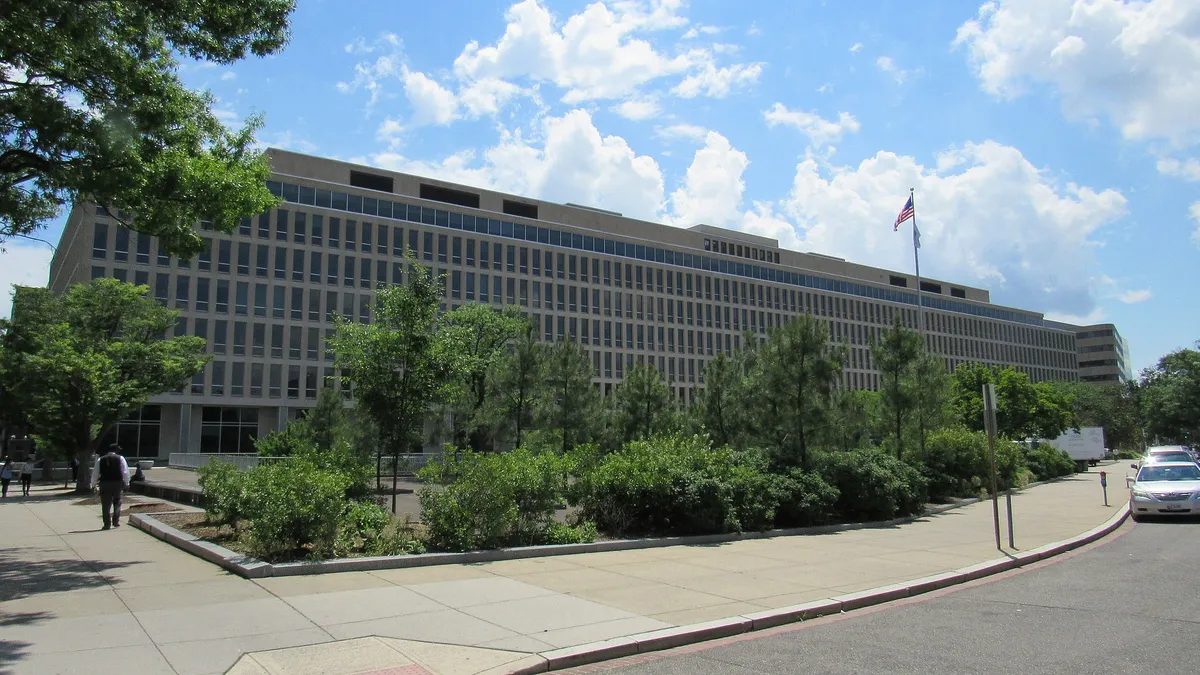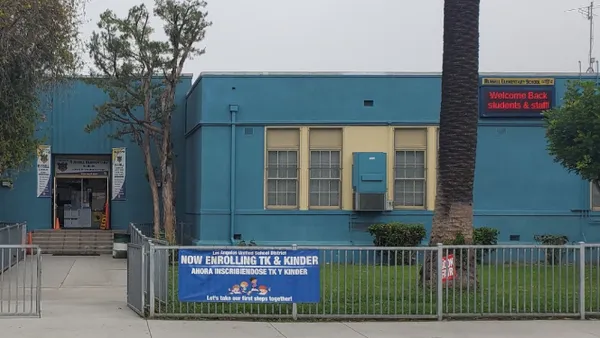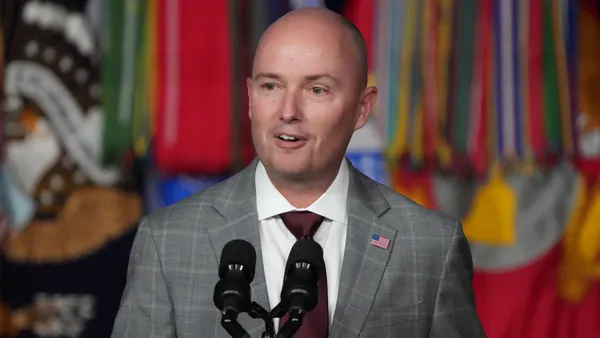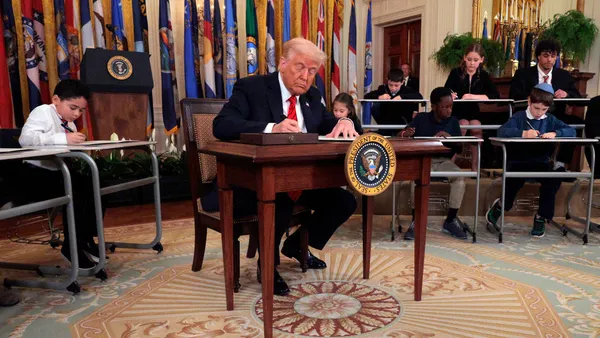Dive Brief:
-
While all states require prospective employers to conduct criminal background checks on educators, only 27 states require prospective employers to also check applicants' employment history, eligibility and disciplinary status, according to a report published Wednesday by the U.S. Department of Education.
-
Of those 27 states, 19 require employers to request information like personnel files and employment history from applicants' current and former employers prior to hiring. Only 11 of the 27 require applicants to share any history regarding investigations or disciplinary actions related to sexual abuse or misconduct.
-
Additionally, 14 states require applicants to give authorization for current and former employers to share information about their employment records, and 20 prohibit suppressing information on employee sexual misconduct. Some prohibit suppression through termination or resignation agreements, while others limit confidentiality or nondisclosure agreements.
Dive Insight:
Such policies are meant to put guardrails around aiding and abetting sexual misconduct in schools — or what is commonly referred to as "passing the trash."
However, enacted policies are uneven across states, the report found. Published in the Federal Register, the report included interviews with state education agency officials in 48 states and analyzed data collected from 50 states and the District of Columbia.
Within state borders, databases sometimes track disciplinary actions on teacher licenses. However, they may or may not specify disciplinary actions related to sexual abuse or misconduct.
Several states — even those that require applicants to disclose information about past investigations or allegations of sexual misconduct — said they had a hard time gathering information on job applicants employed outside their borders.
In one such high-profile case, a former New York City schools official was arrested on charges of facilitating child sex abuse in 2019. A 2020 investigation showed David Hay, the former deputy chief of staff for the New York City Department of Education, signed a nondisclosure agreement with a previous employer in Wisconsin that would have prevented the city from discovering allegations that led to his forced resignation.
States in the report proposed a federal database that would include free and accessible employment histories, including disciplinary actions or findings related to abuse, neglect or sexual misconduct, among other things.
Former U.S. Secretary of Education Betsy DeVos cited the "pass the trash" phenomenon when releasing 2020 Title IX regulations as a practice the department sought to curb. However, analysis of the regulations showed a provision added after the proposed rule was made public in 2018 would allow schools to dismiss sexual harassment, abuse or assault complaints if the alleged perpetrator quits before or during an investigation.
In other words, if an educator is rumored to have sexually harassed or assaulted students and voluntarily quits before or when a formal investigation is launched, the school could dismiss a formal complaint.
When asked why the loophole was left open in the regulations, the Ed Department at the time said that the Every Student Succeeds Act already prevents public schools from engaging in this behavior. However, multiple reports have suggested otherwise.
In 2018, a study showed that only four states had complied with ESSA requirements and that 38 had no plans to create relevant legislation or policy.
The Ed Department's new report this week shows states are calling for clearer guidance on how to follow Section 8546, the provision in ESSA that would theoretically prevent this practice.
Furthermore, the Title IX regulations put in place under DeVos allowing this loophole are still in effect and will continue in schools until after the Biden administration's rewrite of Title IX rules kick in. The Biden proposals have not yet been released and are now expected to come out in June, one month later than originally announced and 50 years after the landmark law’s June 23, 1972, enactment.
The implementation date of the regulations is expected to be much later than that.
In a Tuesday hearing of the Senate Subcommittee on Labor, Health and Human Services, Education, and Related Agencies, Cardona said, “We take the safety of students very seriously. ... We are going to strengthen the system to make sure that states are complying with the recommendations of the report and the expectations of the report. And again, it goes back to making sure we are holding states accountable to following the law.”
Earlier this year, Senators Pat Toomey of Pennsylvania and Joe Manchin of West Virginia asked the department in a letter to address the issue "immediately." They were among cosponsors of Section 8546 when ESSA was making its way through Congress.
"We urge the Department to use the powers at its discretion to address this lack of enforcement," they wrote. "When parents send their children to school, they expect them to be safe. However, this is not always the case.
Correction: A previous version of this article suggested Education Secretary Miguel Cardona had not publicly addressed the issue. We have updated the story.








 Dive Awards
Dive Awards





